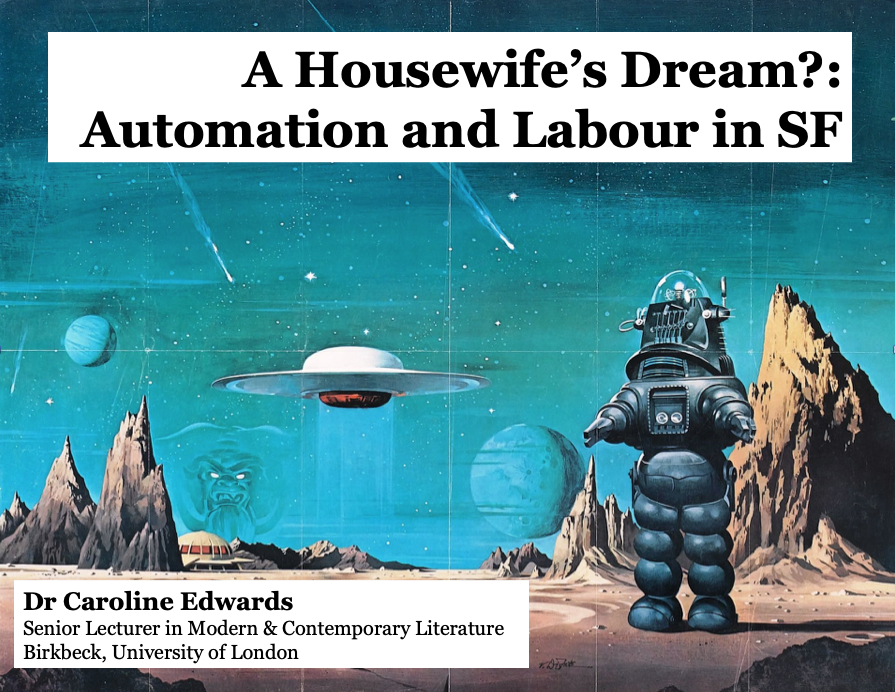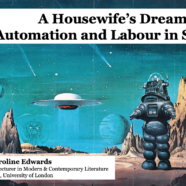Automated Futures

I’ve been working on a new side project on automation and utopian visions of futurity – from Marxist revolutionary theory to theories of post- and anti-work. When the London Science Fiction Research Community (LSFRC) invited me to deliver one of the keynote talks for this year’s annual conference, on the topic of Productive Futures: The Political Economy of Science Fiction, I was really pleased to be able to think a bit more about how SF visions, from the late nineteenth century to the present day, offer us a crucial imaginative resource that can help to rethink the parameters of work, leisure, productive and reproductive labour.
The keynote was titled “A Housewife’s Dream: Automation and Labour in SF.” Working through SF examples, including Forbidden Planet (1956), Ursula Le Guin’s The Dispossessed (1974), Anna Bowman Dodd’s The Republic of the Future; or, Socialism a Reality (1887), Kurt Vonnegut’s Player Piano (1952), Mary E. Bradley Lane’s Mizora: A World of Women (1880-1), Cory Doctorow’s Walkaway (2017) and Joanna Kavenna’s The Birth of Love (2010), I argued that these texts imagine different kinds of automated futures, raising the question: if we were liberated from Marx’s realm of necessity into the realm of freedom, what would we actually spend our time doing? The talk discussed SF works in conjunction with different approaches to the question of work and post-work, including Marxist revolutionary theory (particularly the writings of Herbert Marcuse), ethical and political philosophy, the sociology of work, feminist theory, liberal egalitarian theories of justice and time-use studies.
Click below to LISTEN TO THE KEYNOTE:
And here are the slides that accompanied the lecture. The film clip from “Leave it to Roll-oh” (1940) is available to view on YouTube.







 Dr Caroline Edwards is Senior Lecturer in Modern & Contemporary Literature at Birkbeck, University of London. Her research and teaching specialisms are in 21st century literature and critical theory, science fiction and post-apocalyptic narratives, Marxist aesthetics, and utopianism.
Dr Caroline Edwards is Senior Lecturer in Modern & Contemporary Literature at Birkbeck, University of London. Her research and teaching specialisms are in 21st century literature and critical theory, science fiction and post-apocalyptic narratives, Marxist aesthetics, and utopianism.
Hi Caroline, will this be a published article in the future?
Hi Katie,
Thanks for your interest in this piece! It will be coming out in the next year or so in an edited collection. Here’s the reference:
“A Housewife’s Dream? Automation and the Problem of Women’s Free Time,” Technologies of Feminist Speculative Fiction, ed. Sherryl Vint and Sumeyra Buran (Palgrave, forthcoming 2021).
Are you working on something similar?
All the best,
Caroline.